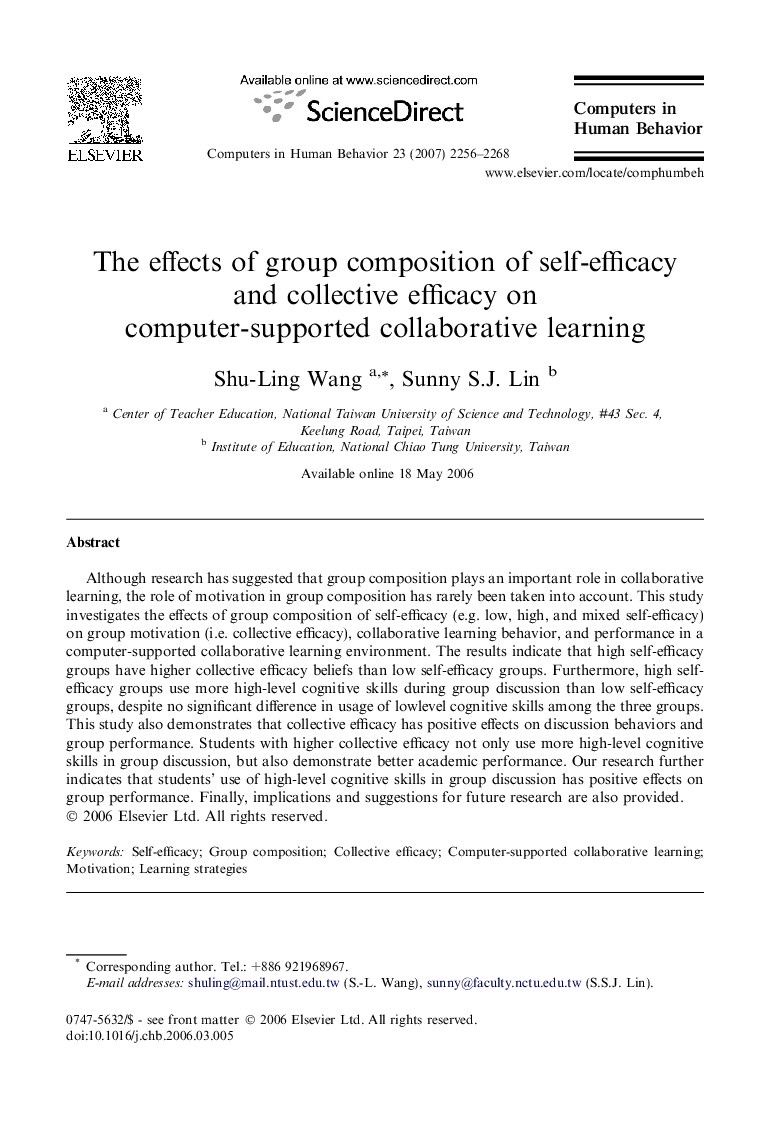| Article ID | Journal | Published Year | Pages | File Type |
|---|---|---|---|---|
| 352384 | Computers in Human Behavior | 2007 | 13 Pages |
Although research has suggested that group composition plays an important role in collaborative learning, the role of motivation in group composition has rarely been taken into account. This study investigates the effects of group composition of self-efficacy (e.g. low, high, and mixed self-efficacy) on group motivation (i.e. collective efficacy), collaborative learning behavior, and performance in a computer-supported collaborative learning environment. The results indicate that high self-efficacy groups have higher collective efficacy beliefs than low self-efficacy groups. Furthermore, high self-efficacy groups use more high-level cognitive skills during group discussion than low self-efficacy groups, despite no significant difference in usage of lowlevel cognitive skills among the three groups. This study also demonstrates that collective efficacy has positive effects on discussion behaviors and group performance. Students with higher collective efficacy not only use more high-level cognitive skills in group discussion, but also demonstrate better academic performance. Our research further indicates that students’ use of high-level cognitive skills in group discussion has positive effects on group performance. Finally, implications and suggestions for future research are also provided.
